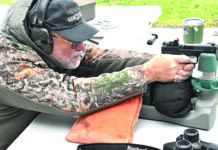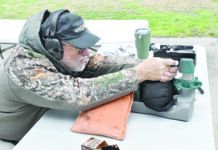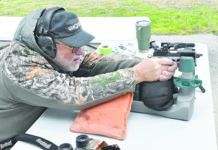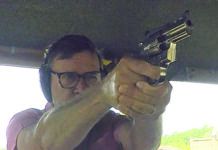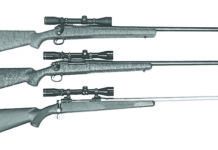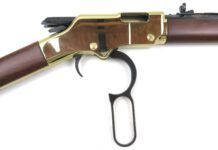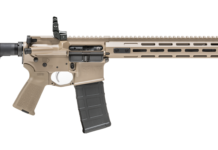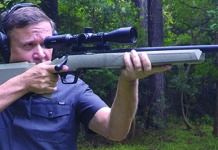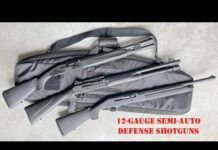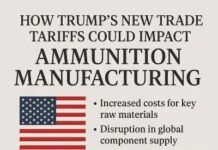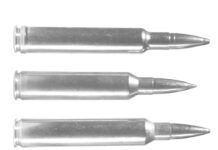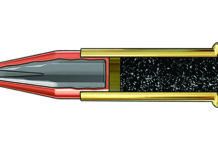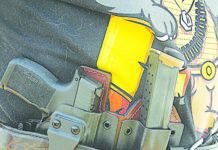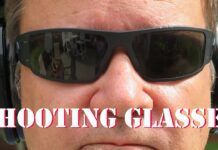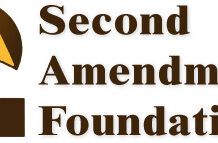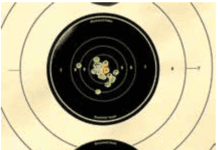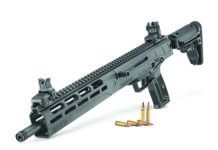Gun Makers, Gun Owners Win Two Major Victories in Illinois
Illinois gun owners won two large battles toward the end of 2004. In a closely-watched court case, the Illinois Supreme Court ruled that firearms manufacturers are not responsible for Chicago street violence or of knowingly supplying guns to criminals. The city of Chicago sued 18 gun manufacturers, four distributors and 11 dealers – asserting the firearms industry is liable for causing a public nuisance – and demanded $433 million for health care costs and city emergency expenses.
And on the legislative front, Illinois lawmakers overwhelmingly voted to give new legal protection to homeowners who use a banned handgun to shoot burglars. The House voted 85-30 to override Gov. Rod Blagojevichs veto. The Senate had approved the bill earlier, so it now becomes law.
Writing in the Chicago suit decision, Justice Rita Garman said the citys claims are the result of numerous unforeseeable intervening criminal acts by third parties not under defendants control.
The mere fact that defendants conduct in their plants, offices, and stores puts guns into the stream of commerce does not state a claim for public nuisance, Justice Garman said. It is the presence and use of the guns within the City of Chicago that constitutes the alleged nuisance, not the activities at the defendants various places of business.
Any change of this magnitude in the law affecting a highly regulated industry must be the work of the legislature, brought about by the political process, not the work of the courts, the courts decision said.
Gun-rights advocates hailed the decision as the final defeat of abusive lawsuits they say are intended to drive U.S. firearms manufacturers out of business.These cases arent designed to win, said Chris Cox, chief lobbyist for the National Rifle Association. Its a sinister abuse of the legal system aimed at bankrupting a lawful industry.
The manufacturers targeted in such lawsuits also make firearms for police officers and the military, Mr. Cox said. Having these companies shut down and jobs sent overseas and then relying on foreign countries to produce military firearms is reckless at best, but unfortunately, that will be the result of these politically motivated lawsuits.
Pro-gun groups are lobbying Congress to pass legislation protecting firearm manufacturers from such lawsuits. The Protection of Lawful Commerce in Arms Act would end liability by manufacturers and sellers of firearms for criminal misuse of lawful weapons.
Chicagos case is just the latest example of why Congress must act swiftly to enact common-sense legal reform to end once and for all these predatory suits, said Lawrence G. Keane, senior vice president and general counsel for the National Shooting Sports Foundation, the firearm industrys trade association.
The Chicago lawsuit was first filed in November 1998 and was dismissed by an Illinois circuit court in April 1999, but that dismissal was overturned by a state appellate court in March 2000.
Chicago sued top firearms manufacturers – including Smith & Wesson, Beretta USA Corp., and Sturm Ruger & Co. Inc. -and what the city called a core group of irresponsible dealers who attract the business of criminals. The gun industry intentionally and recklessly causes thousands of illegal firearms to end up in Chicago, the city said.
The decision is the latest in a long list of appellate court decisions that have rejected politically motivated junk lawsuits that have tried to blame the makers of well-made, lawfully sold firearms for the actions of criminals, said Lawrence G. Keane, senior vice president and general counsel for the National Shooting Sports Foundation, the firearm industrys trade association. Chicagos reckless lawsuit was premised on a thoroughly discredited legal theory.
Keane estimates that the industry has spent almost $200 million dollars to defend itself.
Likewise, the states citizenry had its self-defense rights affirmed when the House overrode the governors veto, essentially allowing people to defend themselves in their own homes.
The new law was inspired by the case of Hale DeMar, a Wilmette restaurant owner who shot a burglar who had broken into his home twice. County prosecutors declined to press charges for the shooting, but Wilmette officials charged DeMar with breaking the citys ban on handguns. About half a dozen Illinois cities ban handguns. Under the new state law, someone who shoots an intruder on his or her property could not be convicted of violating a local gun ban. The new law does not, however, prevent state charges if prosecutors believe the shooting itself was a crime.
Our Take: Chicagos dismissed court case is the latest example of why Congress must enact the Protection of Lawful Commerce in Arms Act, a federal bill that would end suits that seek to impose liability on manufacturers and sellers of firearms for the criminal misuse of non-defective, lawfully sold firearms. Over 30 states have already enacted similar legislation. Illinois took huge steps in safeguarding its legitimate gun-rights traditions. In both cases, common sense ruled: Manufacturers shouldnt be held liable for the criminal use of products, and people who defend their home should not be put through the trauma of facing charges.
———-
Researcher: Let Boys Play With Guns
Banning boys from playing with toy guns is futile and may even damage their development, a London-based child psychologist has warned.
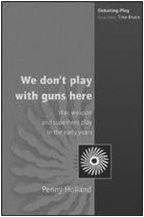
Confirming what many guilty parents long suspected, Penny Holland says boys will indulge in gunplay regardless of attempts by schools, nurseries and guardians to stop them. Holland, who claims boys have fallen victim to politically correct dogma, claims that suppressing their need for boisterous play may be counter-productive. Holland, senior lecturer in early childhood studies at London Metropolitan University, believes that boys who have been banned from playing at soldiers, pirates, or superheroes, become disruptive and live up to a bad boy image.
But her views have been strongly opposed by gun-control groups and families of the children killed in the 1996 Dunblane massacre. The tragedy dramatically accelerated the existing trend towards banning toy guns and swords in shops and nurseries alike.
But in a new book, We Dont Play With Guns Here, Holland says the ban on violent play should be reconsidered. She argues that the zero-tolerance approach that emerged in the 1960s and 1970s was wrong to assume that the spiral of male violence could be broken by preventing boys from playing aggressive games.
Holland claims that 30 years after the ban on playing with guns and swords came into vogue, there has been no evidence of a decline in their desire to play violent games. Boys continued to play behind the backs of staff, even when they had been told it was wrong. Even when the plastic guns and swords were taken away, they did what generations of boys have done before. Pieces of wood, tennis rackets and even pens and crayons, all became guns, swords, and daggers in the fertile young imagination.
Holland adds there is no evidence that boys were more or less likely to grow into aggressive men because of the games they played. The book suggests that nurseries that had relaxed their ban on guns, swords and violent games reported that boys had more fun together, made closer friendships, and became more creative in other areas of play, such as dressing up as princes in fairy tales. Most such nurseries found that the amount of real fighting between boys declined.
Holland said of the war games: It is very much part of them making sense of the world. It relates to timeless themes of the struggle between good and evil. It seems to represent a developmental need to play with these things, and my feeling is that it is counter-productive to work against that.
Where there has been rigorous enforcement of zero tolerance, it marginalizes these children because their interests are so squarely rejected. If they are constantly receiving negative responses to their play interests, with people saying, No, we dont play with guns here, they absorb the sense that they are bad boys. They seek negative attention and it becomes a self-perpetuating cycle.
Helen Fraser, a senior lecturer in child development at Edinburgh University, said she broadly agreed with Hollands findings.
She said: Its all a matter of balance and proportion. I would be very cautious of allowing too much of a fascination with guns to develop, but I think we can all think of examples where we played games such as Cowboys and Indians and it did us little harm.
What I would be more dubious about would be some of the scenes of violence on television and the impact of some very violent video games.
Our Take: We agree with Alan Phillips, a senior member of the UK Practical Shooting Association, who said the research was a welcome dose of common sense. On both sides of the pond, people who shoot have been demonized as gangsters. But the majority of shooters played cowboys and Indians as kids, and sometimes just used our fingers as guns. We all turned out pretty normal.
———-
USA Shooting Names 2004 Athletes of the Year
Kim Rhode (El Monte, Calif.) and Matt Emmons (Browns Mills, N.J.) have been named USA Shootings Athletes of the Year.
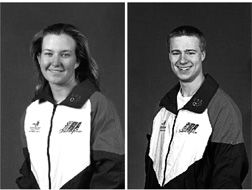
Rhode, 25, won her third Olympic medal at this summers Games in Athens, Greece, making her the most decorated female shooter in U.S. history, winning two gold medals and a bronze in womens double trap in three Olympic Games. Rhode also blew away the competition at the 2004 National Championships and Spring Selection Match.
Emmons, 23, clinched this honor with his superb performance at the 2004 Spring Selection Match, winning spots on the Olympic Team in all three events he shot. Then, at the Olympic Games, he won a gold medal in mens prone rifle. More recently at the World Cup Final, he won a gold medal in mens three-position and the bronze in mens air rifle. Emmons won a silver at the Bangkok World Cup, in mens air rifle, a bronze at the Sydney World Cup in mens three-position, and finished in the top-eight of a number of other World Cup competitions.
USA Shooting also named its Athletes of the Year in all four shooting disciplines. Lance Bade, of Colorado Springs, Colo., fired his way to the top-honor in the shotgun discipline. Bade topped the results list at every National event he shot. Also, he finished second at the Brazil World Cup, fourth at the World Cup Final, and fifth at the Olympic Games.
In womens rifle, University of Alaska-Fairbanks shooter Jamie Beyerle (Lebanon, Pa.) won an outstanding six medals at the National Championships. She also took a bronze medal in womens three-position at the Bangkok World Cup in February.
In pistol, 2004 Olympians Beki Snyder (Grand Junction, Colo.) and Jason Turner (Colorado Springs, Colo.) were named Athletes of the Year. Snyder finished in the top-two in both womens sport and air pistol at the Spring Selection Match, winning a spot on the Olympic Team in both events. Turner also won spots on the Olympic Team in both free pistol and air pistol.
In running targets last year as an Olympic discipline, Adam Saathoff (Hereford, Ariz.) clinched the Athlete of the Year award. Saathoff has been the strongest U.S. running target shooter for the past four years. He had an eighth-place finish at the Olympic Games.
Our Take: Obviously, these are fine shooters, and they deserve these plaudits. Moreover, Rhode has been a dominant shooter internationally for several years now, and Emmons has restored a measure of what was once the U.S.s rifle superiority.
———-
Majority For Handgun Ownership
A Gallup survey found that 63 percent of U.S. citizens oppose laws banning private possession of handguns. On the other side, 36 percent support gun bans. Coincidentally or not, these percentages, 63-36, are the identical percentages of gun-owner votes cast respectively for President Bush versus Senator John Kerry, according to exit polls.
Our Take: Gun owners sit squarely in the majority of voters in the United States. Attempts to legislate away our rights will lead to the defeat of political parties and politicians who oppose us.
———-
Bob Allen Killed In Car Accident
Bob Allen and his wife Sari were killed in a car accident near Omaha, Nebraska on November 17, 2004. Allen was a target shooting legend who parlayed his success on the trap and skeet fields to form the Bob Allen Company in 1946.
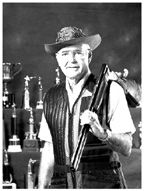
His shooting awards included two World All Around Championships, 72 state trap and skeet championships in 17 different states, and four separate Hall of Fame inductions, including the ATA Trapshooting Hall of Fame. He was inducted into the Des Moines Register Sports Hall of Fame in 1997.
Allen was an accomplished skeet and trapshooter prior to World War II, and during the war he continued his craft while a gunnery officer in the Air Corps. After the war, while following shooting tournaments, Allen noticed a scarcity of proper shooting clothing and accessories. He designed shooting vests, coats, caps, bags and other products and started selling them to sporting-goods dealers around the country.
Allen continued to compete as he built his business, and he won many titles, including the National Live Pigeon Championship, World All-Around Championship (twice), and the Grand Prix of Paris. He was also a member of the United States team when it won the Match of Nations in Monte Carlo, and he was an 11-time member of the All-American Trap Shooting Team.
The Allen clothing line gradually grew to include upland hunting clothing, which became as popular as the shooting line.
Bob Allen Sportswear was first located in a building in downtown Des Moines, Iowa, which is now the site of the Federal Building. In 1955, the business had grown to a point where a larger building was needed, and new factory was built in Des Moines to accommodate the growth. Allen remained active in the organization on a consulting basis throughout most of the 1990s. In October 1997, Boyt Harness Company purchased Bob Allen Sportswear and moved the headquarters to Osceola, Iowa.


